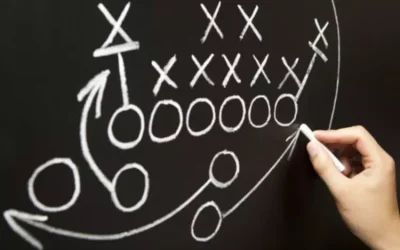Content
Some are able to return to normal sleep patterns after a few days. Others struggle with insomnia and poor-quality sleep long after they quit drinking. In the case of severe symptoms or delirium tremens, a person may be admitted to a hospital ward or the intensive care unit (ICU) for medical treatment during alcohol withdrawal.

Do anything and everything you can to distract yourself from drinking. Whether that’s watching TV, cooking dinner, cleaning the house, going for a walk, or taking a bath. Force your self to do normal activities, but nothing too strenuous or physical beyond what you might normally do. If you don’t really like hard seltzer, like me, drink hard seltzer. It has a lot of water and you can find them in the 4.5-5% range.
Support
Further, the severity of withdrawal symptoms can cause a person to resort back to drinking alcohol to relieve any symptoms. However, doing so without the guidance of a physician, can complicate tapering and ultimately delay when, if ever, sobriety is reached. Tapering off alcohol is the act of slowly reducing alcohol intake until a person becomes completely abstinent.
If you don’t like beers, drink beers (find ones with lower alcohol, some have high concentrations). You can also take break days, where you drink the same amount as the previous day https://ecosoberhouse.com/ to sort of level yourself off. For example, if you notice your tremors are getting pretty bad three days in, drink the same amount you drank on the third day for the following day.
Delirium Tremens
“Today, I went to the grocery store, and I cannot believe how clear everything is getting. It’s amazing how foggy life was.” Intense cravings and irritability are commonly reported after day 12. “It feels good. I feel strong. I am also amazed I have had none of the typical shakes, hallucinations, palpitations, etc. other than a horrific constant headache.” “My worst withdrawal symptom is that my brain does not seem to work very well. Lots of spelling errors and poor fine-motor skills. I will not even go into the insomnia.” “Physically, I feel fine now, but I still crave alcohol like crazy. That’s going to be the worst part.”
- It’s always best to consult a physician on the best strategy, especially if you drink heavily.
- Are you tapering because you physically depend on alcohol, or are you tapering because you want an excuse to drink longer?
- Drinking on a daily basis can have irreversible consequences on the body and mind.
- Ark Behavioral Health offers 100% confidential substance abuse assessment and treatment placement tailored to your individual needs.
It also lets you start working new habits and routines into your day to replace drinking, starting the transition. Rather than beginning your sober life drained and dazed from a week of feeling ill, you can already be getting on your feet. The conventional Western model of alcohol treatment has a statistically poor success rate, as approximately 50% “of individuals who begin an addiction treatment program relapse within six months”. In addition, social pressures can make it hard to quit drinking, especially if your friends or family also drink heavily. Quitting drinking can feel very isolating, making it even more difficult to do on your own at home without medical support.
Why You May Need to Wean Your Alcohol Use
If you get moderate tremors or start hallucinating six hours after your last drink, you probably need to taper. Everyone is different, so it’s ultimately up to you to decide if you want to taper or not. Substituting a prescription drug for alcohol should only happen with the help of a medical professional.
Meanwhile, the brain is producing more and more neurotransmitters, making a person further imbalanced. When someone drinks alcohol for a prolonged period of time, their brain chemistry changes. Alcohol is a depressant, so the body responds by producing more stimulating chemicals, including the neurotransmitters dopamine and gamma-aminobutyric acid (GABA). Avoid taking prescription drugs that your doctor hasn’t prescribed to you. If withdrawal is so uncomfortable that you’re turning to drugs for comfort, you should contact your doctor or a rehab center to discuss medically supervised withdrawal.
If you plan to taper your drinking in order to stop, make sure that you limit your intake consistently, avoid fluctuations, and adhere to a weekly reduction schedule with a set date to stop. While LSD is not necessarily physically addictive, frequent use can take a lasting toll on mental health. Psychological addiction, while rare, is also a distinct possibility. In some cases, professional help is needed when someone is psychologically withdrawing from a drug because depression or suicidal thoughts can occur. Or maybe it’s a pregnancy that made you realize it’s time to stop drinking.

If the withdrawal symptoms persist for five days, many give in and take a drink to get some relief. That’s why some people can how to taper off alcohol say they quit for three or four days 100 times. Your body and mind are undergoing enormous change as you adjust to sobriety.


